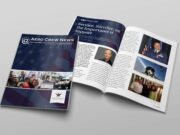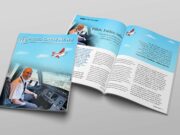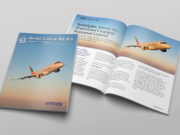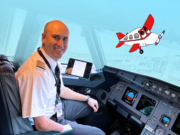
How quickly should we move through flight training?
Many student pilots are blessed with the opportunity to dictate the pace of their flight training without needing to worry about finances, holding a job, or school schedules. To many, an important question presents itself: should I pursue an expedited training plan to receive all my ratings quickly, or is it worth it to take it slower?
As with many things in aviation, there are multiple ways to consider this question. Ultimately, the best solution comes down to your life circumstances and what you value in your flight training.
For many, getting as many hours, certificates, and ratings as quickly as possible is paramount. Many flight schools offer expedited training programs for just this purpose; offering training in as little as a few weeks or a month or two for each license. With such a program, the student spends a substantial amount of time in the air and the classroom to gain their experience in as little time as possible. Thus, the pilot is sooner eligible for work as an instructor or a first officer. This allows the pilot to build real-world flight experience sooner and make the best case for better and better positions. Some might go from zero hours to a fully certified instructor in under a year in order to advance their careers quickly.
Some, however, believe that simply training to pass the tests isn’t an effective way of creating a well-rounded pilot, instead opting for a more thorough training method that, while slower than an expedited course in terms of the calendar months dedicated to training, allows a pilot to enter the workforce with more experience and well-rounded knowledge. To accomplish this, one might spend more time in ground training sessions and walk through maneuvers in the aircraft more slowly. Thus, one can leave training with a greater breadth of knowledge and practical experience than if one moved through quickly.
Of course, there are extremes to each side. To say that prolonging training gives more experience doesn’t mean that a quick training method offers none at all, but new pilots should be weary of programs that completely deprive all of it. On the other hand, many training programs needlessly prolong training and, sometimes purposefully, hold pilots back from accomplishing their certificates on a reasonable timeline. Thus, it’s important to be aware of how your flight school proceeds with training and what they prioritize in training.
Both paths through training certainly have their benefits and drawbacks, and there’s really no “correct” path to take. Again, which path you take may depend on circumstances outside of flight training. Whichever path you want to take, with all other variables being negligible, depend on what you value in your training and career.
Be careful of the promises that flight schools make, no matter which way you go. For example, do research to ensure that the timelines that the schools promise are genuine and possible. Meanwhile, consider whether there are any claims or signs that your training will be drawn out excessively in order to pull extra money from you. As long as you know you’re going into a good situation and flight school, you’ll be able to make the most of your flight training journey.





















































